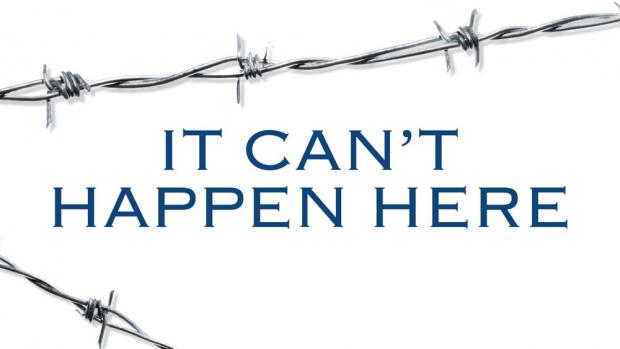It Can't Happen Here
I recently completed reading It Can’t Happen Here, by Sinclair Lewis. It was published in 1935, and I assume that Lewis was troubled by what had been happening in Germany in the early 1930s. Lewis conjured up a story about politics, leading up to the presidential election of 1936 and beyond. Many people also saw the book as a commentary on Senator Huey Long, a populist firebrand who was looking to run for president prior to his assassination.
The story is both crazy and disturbing. It’s about a Democratic candidate for the presidency who challenges Franklin Delano Roosevelt and a couple other candidates for the party nomination. FDR was part of what passed for the party “establishment.”
The insurgent candidate is Senator Berzelius Windrip, who represents a poor state in Congress. He is a populist who promises drastic economic and social changes. He is big on patriotism and a return to traditional values.
At the convention held in Cleveland Windrip overwhelms FDR and the others to win the nomination. Roosevelt goes on to run on the anti-Windrip Jeffersonian Party ticket.
Windrip centers his campaign on all the good things he plans to do as president. Everyone will get money. Veterans will get bonuses.
Actually not everyone would get money, since Windrip frowns on African-Americans. He is not too fond of Jews, either. He believes all women should leave their jobs and become homemakers, with the exception that they may work as teachers or nurses.
Windrip’s campaign is boosted by the support of men who are out of work and out of luck. They even have an organization of their own, the League of Forgotten Men. As the campaign progresses the Windrip campaign organization was supplemented by his Minute Men (a.k.a. MMs). Violent fights often break out at his rallies, with the MMs enforcing order by beating opponents when they think it necessary.
Windrip wins the election, defeating FDR and the Republican candidate, Walt Trowbridge. Then things really get interesting.
Windrip does not carry a congressional majority in with him so he has to be resourceful. While taking office he asks Congress to grant him unlimited power to run the country on his own. Congress refuses, so he has about one hundred congressmen rounded up and put in jail. A Supreme Court Justice or two is also locked up. He then gets the powers he asked for.
Windrip proceeds to re-organize things. States are consolidated and renamed. Elected officials are removed and replaced mostly by members of his Minute Men, who do not hesitate to kill or beat up people who do not cooperate. Concentration and labor camps are set up. His opponent in the presidential election, Trowbridge, is put into protective custody but manages to outsmart the MMs who guard him, fleeing to Toronto, where he works to set up an insurgency.
The story weaves back and forth about a small-town newspaper owner who boldly criticizes the new president. The paper is taken over and the editorial policy changed. All newspapers and radio stations are required to be loyal to the leader, affectionately known as “the chief.”
As time goes on, taxes are raised to support the military and the MMs. The public never gets what the president promised. Fear and intimidation reign.
The New Underground (NU) fights back, but with limited success. The president is overthrown by his secretary of state, but problems continue. The new president is killed and replaced by another early Windrip supporter, who tries to rally the country to support him by slandering Mexico in the media and calling for a war against that country.
The book does not have the technology-oriented style of modern political novels, but it highlights some features that may sound familiar: a low information society; angry people who want their lives to be better and more like they used to be; the power of intimidation and violence; a glimpse at what can happen when good people stand by and tolerate a brewing evil.
Is the story a bit extreme? Probably. And after all, this is just a novel. It can’t happen here.
Ken Kruly writes about politics and stuff at politicsandstuff.com.

